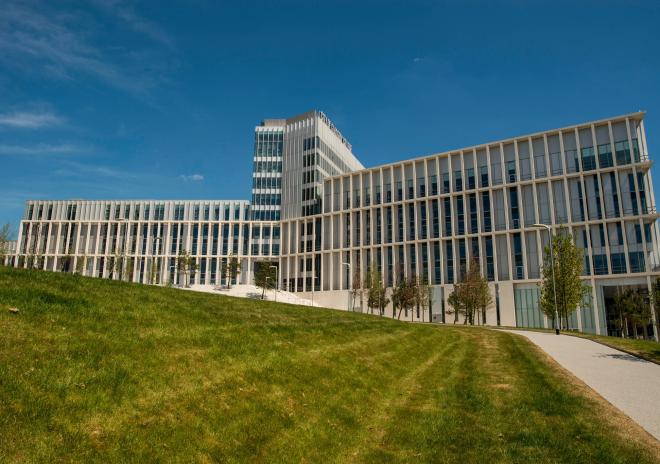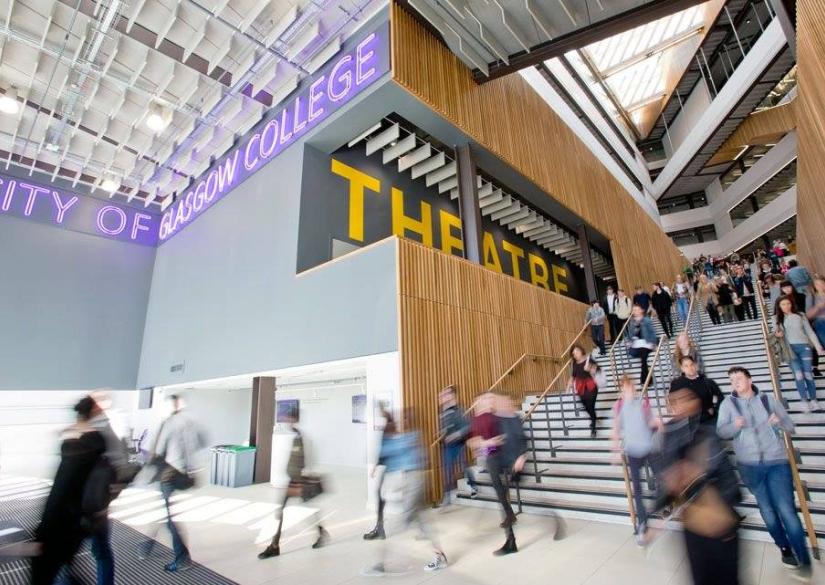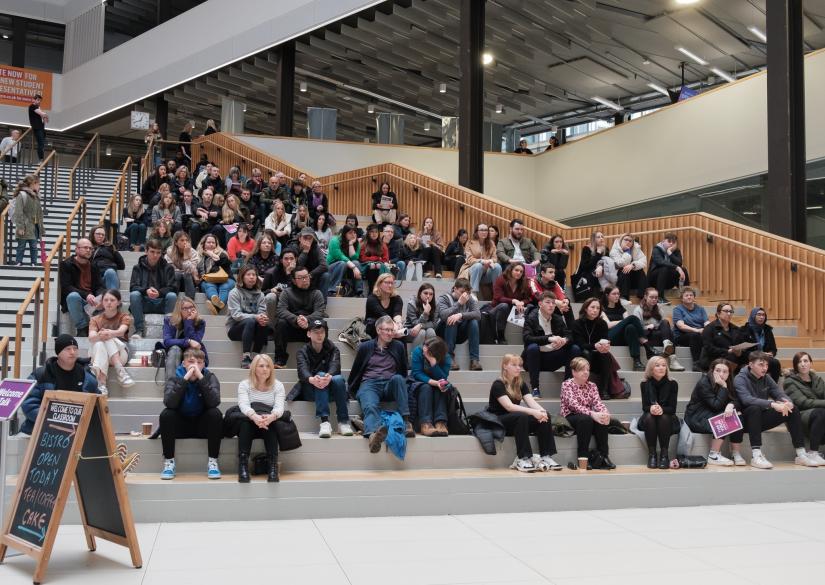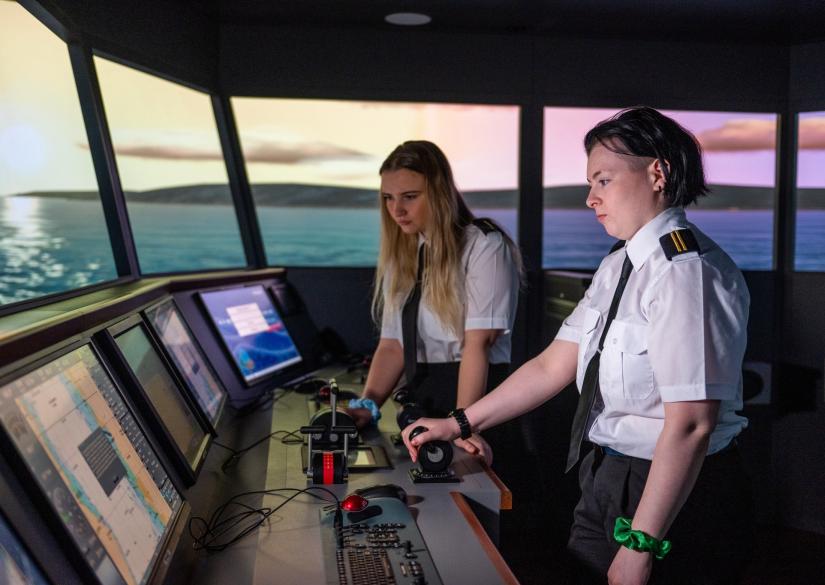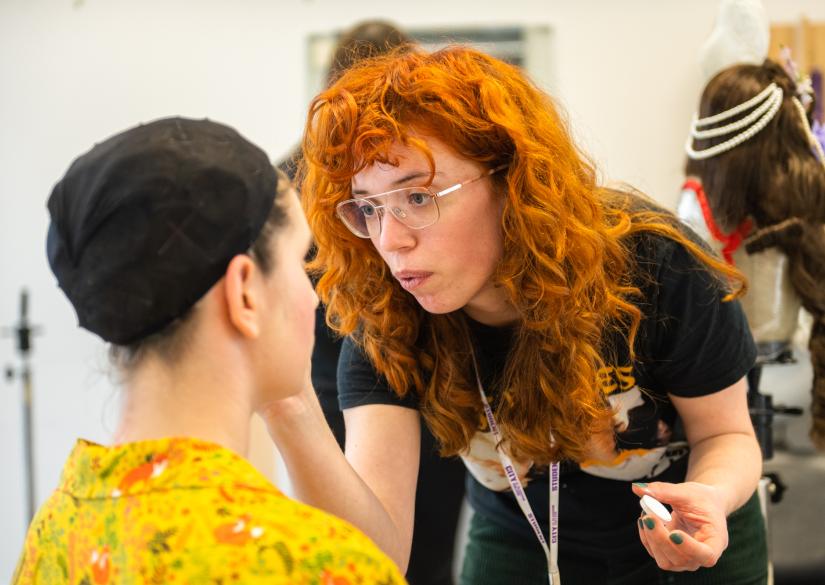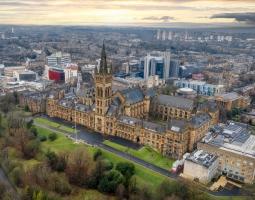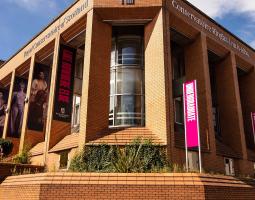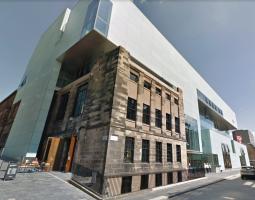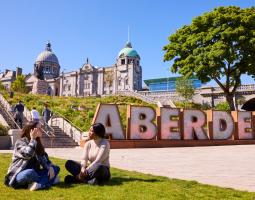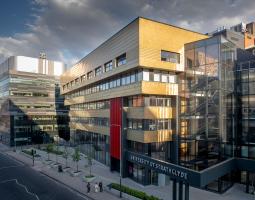City of Glasgow College
Programs and prices, tuition fees in City of Glasgow College
Higher National Certificate (HNC)
A Higher National Certificate (HNC) is an academic qualification that is offered in the UK and other countries.
The HNC is designed for students wishing to pursue a technical or vocational education. It provides more practical and professional guidance than a bachelor's degree and offers a hands-on approach to learning and developing skills that can be very useful in real-world professional situations.
The HNC is a Level 4 qualification in the UK's national qualification system, which means it is at the same level as the first year of a bachelor's degree.
Higher National Diploma (HND)
The Higher National Diploma (HND) is the highest professional qualification offered in the UK. The HND is an extension of the Higher National Certificate (HNC) and provides deeper and broader knowledge and skills in the chosen professional field.
HND can be offered in various fields of knowledge – business, engineering, information technology, healthcare, and others. The HND training program may include more advanced theoretical lectures, practical classes, project work, individual and group projects, internships, and other types of academic and professional activities.
The HND is a level 5 qualification in the UK's national qualification system, between the HNC and the BSc. The HND can serve as a stand-alone qualification, can be used as an intermediate step towards a bachelor's degree or other higher qualifications.
Bachelor
Bachelor's degree – bachelor's degree.
All programmes are SCQF compliant – a way of comparing Scottish qualifications with other qualification frameworks. To do this, each qualification is assigned a level and number of credit points.
- The skill level shows how difficult the training is.
- Credit scores show how much knowledge is needed to obtain this qualification.
Description of City of Glasgow College
- Students age: from 16 years old,
- Location: Glasgow, Scotland,
- The educational institution was founded: 2010,
- Type of institution: college of additional and higher education,
- Language of instruction: English,
- Type: mixed.
The City of Glasgow College implements blended learning: it combines classroom instruction and self-study with online learning, in which students can partially control the time, pace and place of their learning. It may include some or all of the following activities:
- Participation in classroom classes in offline and online classes,
- Work in workshops,
- Watching videos, using multimedia and working on online platforms,
- Internships or industrial activities,
- Project work and self-study,
Students are given access to the college's library and digital collections. The learning activities combine online and on-campus class attendance, with both options having the same value.
Educational process
The main goal of City of Glasgow College is to educate highly qualified specialists in various fields. The educational process is based on an individual approach to each student. The college has up-to-date infrastructure and equipment, competent teachers, which allows us to provide quality education.
A variety of methods are used to ensure quality at City of Glasgow College, including lectures, seminars, laboratory sessions, and workshops. The teaching team includes specialists from different fields who have extensive experience and are actively involved in scientific activities.
One of the basic principles of the educational process in the institution is the development of practical skills. The college cooperates with various companies and organizations, providing internships and internships is an important part of the education.
Faculties and colleges
The college has four faculties that offer a wide range of full-time and part-time courses, evening courses, and weekend courses:
- creative industries,
- education and humanities,
- hotel business and recreation,
- marine sciences and STEM (science, technology, engineering and mathematics).
Things to know about
Glasgow College is Scotland's largest college of technical and vocational skills. Since the merger of several colleges in 2010, the college has enabled more than 100,000 graduates to gain recognised qualifications by partnering with employers, businesses, industry and education partners to create a curriculum that includes more than 1200 courses with flexible learning across four departments. Innovative approaches to teaching and learning provide individual development across a range of subjects on campus and online.
The college is internationally known for its work in the marine, food and hospitality industries, and is nationally recognized for its award-winning work in procurement and the creative industry. Its innovative blended curriculum helps address skills shortages and gender disparity stereotypes in a number of areas, including early education and child care, construction, and STEM subjects.
Accommodation, meals, prices
City of Glasgow College can provide the student with state-of-the-art student housing located just minutes from campus. If this type of housing does not suit the student, then there are also a number of private student residences throughout the city - you can learn more about them in the guide to student housing. The student also has the opportunity to rent or rent housing: an apartment or a house.
Activities City of Glasgow College
At City of Glasgow College, students can participate in athletic activities – both recreational and competitive sports. Major sports include running, football, basketball, badminton and volleyball. The college is a member of British Universities and Colleges Sport (BUCS) and Scottish Student Sport (SSS) – they host local and national tournaments, competitions and leagues.
Advantages
- Third place in the world in the overall global benchmarking of EFQM: in 2022, the college received 7 "diamonds" of the world ranking. The diamond rating is the highest level of recognition by the world community,
- A blended type of education that provides many options for career development, advice on future activities with professionals,
- State-of-the-art technical equipment and a developed campus environment that provides ample opportunities for extracurricular life.
- Knowledge, skills and social connections that will help in future development and employment.
Facilities and equipment at City of Glasgow College
City of Glasgow College continuously invests in the latest teaching equipment on campuses so that students can study in a modern, flexible and supportive environment:
- Television, radio and photography studios,
- Beauty salons and hairdressers,
- Kitchens, educational restaurant and bar,
- Bakery and butcher shop,
- Computer and language classes,
- cockpit of the aircraft,
- Ship's simulator and engine room.
Admission dates and extra charges
Face-to-face courses start in August and end in June. The year is divided into two semesters:
- from August to January,
- From January to June.
In 2022-23, the HNC/D tuition, including the SQA (Software Quality Assurance) fee, was £7500 per year. For all international students, full prepayment of fees is required. The recommended amount for living expenses set by the UK Home Office is £1023 per month for 9 months of full-time courses.
Enrolment process
The process of drawing up an application is quite simple - in order to fill out the application, the student will need:
- Insurance and candidate number,
- Payment of the registration fee,
- Academic performance data,
- Personaldata.
The college welcomes applications from international students. Applicants from countries where English is not their first language may be required to prove their English proficiency through the UKVI-approved Secure English Language Test. City of Glasgow College accepts IELTS Academic for UKVI, PTE Academic UKVI, LanguageCert ESOL SELT B2 (UKVI approved) and London Trinity for UKVI tests.
For some courses, the college asks for a portfolio as part of the admission requirements (portfolio guidelines are provided).
The college selects a place of residence for all types of programs: this helps to determine what the applicant is entitled to, for example, funding when paying for the course. To do this, the student may be required to provide proof of eligibility to study in the UK, a copy of their passport, birth certificate or other document proving the student's place of residence.
After receiving an official invitation to study, foreign students need to apply for a visa and start looking for housing.
Enrolment statistics
Every year, about 10,000 students enter the college for various programs, a smaller part of them enter online courses and additional education courses. At the same time, 20-30% of students are foreign.
Perspectives
At City of Glasgow College, students receive personalized and helpful career counseling at all stages of their studies. They help to make sure that the student is going in the right direction and can achieve their goals.
The college helps:
- Choose a suitable learning path,
- Get information and apply for student funding,
- Develop employability skills,
- Build a portfolio or find a part-time job,
- Plan your future activities after college, including further education in other educational institutions.
The college can help students plan their careers after graduation and will inform students about all sorts of suitable vacancies through a special Job Shop. If a student needs help finding and applying for a job, they can make an appointment with specialists at the college for a consultation.
Glasgow Regional Board of Colleges (GCRB) is committed to providing free and unbiased advice and guidance so that you can have the best possible learning experience.
All courses are aimed at improving and improving the employability skills of students in their chosen field of activity.
Every year, 8000 graduates graduate from college, ready for work, more than 90% of successful students continue their studies, undergo internships or get a job.
Entry requirements, how to apply, what is required to enrol
- Age: Students under the age of 16 may only be enrolled in certain courses, must have the written consent of their parents or guardian,
- Most courses at City of Glasgow College require a good knowledge of English and completed secondary education. Some courses may have higher requirements - professional certificates or university diplomas,
- English language proficiency: students for whom English is not their native language must confirm the level of language proficiency (IELTS or TOEFL),
- Finances – Before applying for admission to City of Glasgow College, a student must ensure that they have enough money to pay for tuition and accommodation in the city. Tuition fees vary by course and may vary depending on where you live.
Scholarships City of Glasgow College
For most students studying in Scotland, the government covers the cost of full-time courses. A student can receive assistance with tuition fees, including room and travel expenses, study materials, and childcare. What a student is entitled to depends on:
- Nationality and residency status,
- Courses of study, full-time or part-time,
- Age and start date of the course,
- Personal circumstances, e.g. income, marital status, dependents,
- Family income.
A student needs to submit a new application for funding every year they are in college.
Institution on the map
Residence permits, citizenship and other services
- Guardianship services during the studies
- Student supervision
Review about City of Glasgow College
Recommendations on when to apply
| Language courses, schools and children's language camps | Primary and secondary education - private schools | Preparation programmes for entering universities - higher education | Higher education (after completing accredited programs A-level, IB, High School) - Bachelor, Master, MBA |
| - we recommend to apply 6-9 months before the start of the course (some camps and schools offer discounts for early booking or for lengthy study programs) - there are some very popular and high demand children's camps, where the applications need to be submitted 1 year in advance (in particular Switzerland , Great Britain , USA , Canada , Austria) | - we recommend to apply one year before the start of the training program, - some schools have a specific time frame (September-November - please specify an individual school) - some schools require tests in several stages (UKISET, internal tests of the school: English, mathematics, logics, subjects, interview, some require a personal visit) | - we recommend to apply one year before the start of the program, - for Foundation and Pathway programs, IELTS and TOEFL certificates are usually required, respectively | - recommended submission one year before the start of the program, - the deadline normally closes in January, for TOP HEIs and, as a rule, in March in other universities - for a bachelor, a Foundation or Pathway preparatory program a completed A-level, IB, High School + IELTS / TOEFL are required - for Masters you need a graduated higher education, in some cases you need a pre-Masters program - MBA requires completed higher education, work experience preferably at least 2-3 years, etc. |


